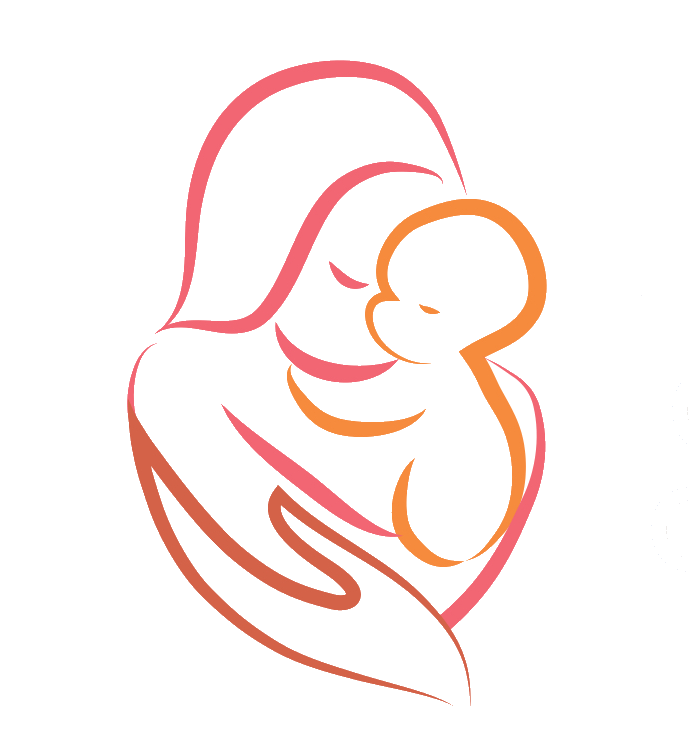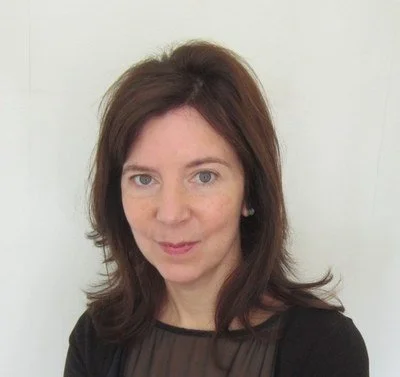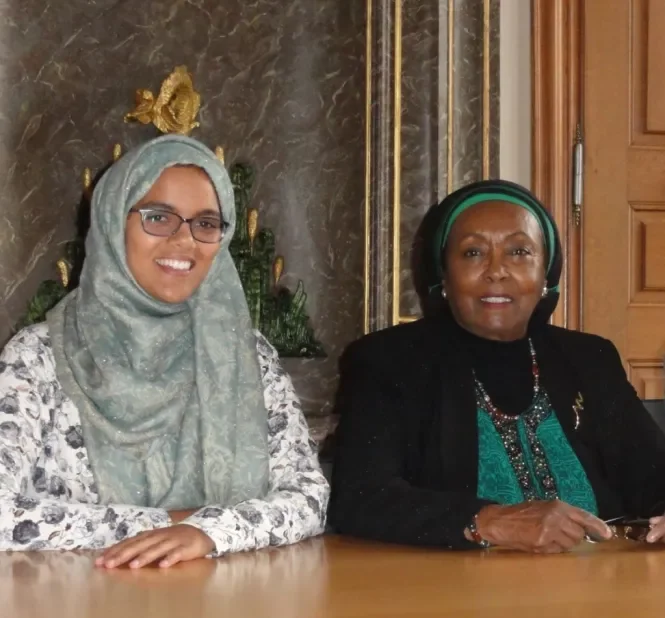Our Team
-
![]()
Dr Laura Hammond
Laura Hammond is the Chair of the Edna Adan Foundation UK.
Outside of her work with the Foundation, Laura Hammond is Deputy Vice-Chancellor of Research and Knowledge Exchange and Professor of Development Studies at SOAS.
Laura Hammond is an anthropologist (PhD University of Wisconsin-Madison). She has been conducting research on conflict, food security, refugees, migration and diasporas in and from the Horn of Africa since the early 1990s. She lived in Ethiopia from 1993-2000, conducting research and working for the UN Emergencies Unit for Ethiopia (the precursor to UNOCHA). Among her research activities, she is PI of the Impact Acceleration Account on Migration, Displacement, Minorities and Marginalisation.
She is also Co-Director of the Work Package on Poverty and Inequalities for the Migration for Development and Equality (MIDEQ) Research Hub on South-South Migration. She is Team Leader of the EU Trust Fund’s Research and Evidence Facility on migration and conflict in the Horn of Africa, and Team Leader of the London International Development Centre's Migration Leadership Team. She has done consultancy for a wide range of development and humanitarian organisations, including UNDP, USAID, Oxfam, Medécins Sans Frontières, the International Committee of the Red Cross, and the World Food Programme.
She is the author of ‘This Place Will Become Home: Refugee Repatriation to Ethiopia’ (Cornell University Press: 2004), editor (with Christopher Cramer and Johan Pottier of Researching Violence in Africa: Ethical and Methodological Challenges [Brill 2011] and several book and journal articles.
Additionally, she is Challenge Leader for Security, Protracted Conflict, Refugees and Forced Displacement for the Global Challenges Research Fund, Head of the London International Development Centre's Migration Leadership Team, and Team Leader for the Research and Evidence Facility (Horn of Africa Window) of the European Union Trust Fund for Africa.
-
![]()
Rhoda Ibrahim
Rhoda Ibrahim is the Co-Founder and Treasurer of the Foundation. Additionally, she is a community leader, CEO and the founder of the Somali Advice and Forum of Information (SAAFI) in the UK (An award-winning community organisation in London). Rhoda has more than 35 years of extensive hands-on management experience in gender, resilience, organisational capacity building, conflict understanding, peacebuilding, and rehabilitation for war-torn communities in the Horn of Africa.
Rhoda holds a BSc in Social Sciences from the College of Education Lafoole in Somalia, Diploma of Women and Development at IDS of Sussex University in Brighton and a Diploma in Working with Conflict (WWC) at Woodbrook College of Selly Oak, Birmingham
Rhoda has worked for various charities and organisations including UN agencies, Oxfam, the Somali Relief Association, the United Nations High Commissioner for Refugees (UNHCR), International Cooperation for Development (ICD), London Refugee Voice (LRV) and many others.
Some of the remarkable achievements and recognition include:
In 2019, Rhoda Ibrahim was among 160 guest leaders from the UK Faith and Voluntary sector organizations who were invited to a reception hosted by The late Queen Elizabeth II at Buckingham for their contribution to the communities.
In 2020, Rhoda spoke out about the ‘brutal injustice’ of the Covid-19 pandemic. Speaking in the Guardian after a high number of residents died of coronavirus in the Church End estate in north Brent, where there is a large British-Somali population. She boldly addressed the harsh realities of the Covid-19 pandemic, advocating for those in need.
Her activism prompted a remarkable response from across the UK, with donations pouring in to support SAAFI's cause. As a result, an innovative new program to tackle health inequality, Brent Health Matters, was launched in partnership with the local council and community organisation. More than £1m of additional NHS funding was secured for primary care in Church End and Alperton, and Brent council received Community Champions funding from the Ministry of Housing, Communities and Local Government.
In 2022 - Rhoda's impactful work led to her recognition to be one of 220 women and non-binary people in the City of Women London Map in 2022 and the naming of Stonebridge in Brent after her.
-
![]()
Ayan Mahmoud MBE
Ayan Mahmoud MBE is a distinguished former diplomatic representative of Somaliland to the United Kingdom. Known for her dedicated service, Ayan has been a passionate advocate for Somaliland’s recognition on the international stage and a powerful voice for promoting peace, economic development, and diplomatic relations. She was also invited to Buckingham Palace to meet King Charles on the occasion of Somali Week Festival.
During her tenure, Ayan successfully elevated Somaliland’s profile in the UK through tireless advocacy and strategic partnerships. Her work led to enhanced cooperation in areas such as trade, education, and investment, fostering economic growth and development initiatives for Somaliland. Ayan’s efforts in policy dialogue and networking have helped build vital relationships between Somaliland and the UK, showcasing Somaliland’s unique status as a peaceful, democratic entity in the Horn of Africa.
Ayan’s leadership is marked by her commitment to public service and her vision of Somaliland’s future as a recognized member of the international community. Her impactful work continues to inspire new generations of diplomats and advocates, as she remains a respected figure in international diplomacy and an influential voice for Somaliland and the Somali diaspora globally.
-
![]()
Mary Harper
Mary Harper is a journalist and author specializing in Africa, with a particular focus on Somalia and the wider Horn of Africa. Currently the BBC’s Africa Editor, she has reported on events across the continent since the early 1990s. She is the author of Everything You Have Told Me is True: The Many Faces of Al Shabaab (Hurst) and Getting Somalia Wrong? Faith, War and Hope in a Shattered State (Zed Books).
She has contributed chapters to other books and writes for academic journals and various media outlets, including The Guardian, The Economist, and The Washington Post. Her research has been commissioned by organizations such as the United Nations, the European Union, and others, covering topics like Somalia, Islamist extremism, media, sea piracy, and migration. She also serves as an expert witness in Somali-related legal cases and holds board positions in multiple organizations connected to Africa and beyond.
As a fellow of the Rift Valley Institute and the Heritage Institute for Policy Studies, she is a frequent speaker at conferences, literary festivals, and other events, and has extensive experience as a moderator.
Her academic background includes degrees from Cambridge University and the School of Oriental and African Studies. She is fluent in English, French, Portuguese, and Wolof.
-
![]()
Farah Aden
Farah is a Trustee at the Edna Adan Foundation UK. Farah has had the privilege of supporting Edna Adan in her mission to advance health, education, and human rights in Somaliland. In 2017–2018 she worked as Edna’s personal assistant in Hargeisa and also taught English to the first group of medical students at the Edna Adan University. Her work has ranged from organising village outreaches to supporting anti-FGM campaigns and fighting maternal mortality, to partnering with UNICEF to challenge HIV/AIDS stigma, and fundraising for patients in need — including £3,500 for a child with life-threatening burns.
She has helped amplify Edna’s vision internationally, accompanying her on outreach trips across Europe and strengthening partnerships with institutions such as Basle University Hospital. Alongside this, Farah managed communications, translations, and events from graduations to hospital anniversaries, to the International Hargeisa Marathon where she coordinated medical support (and even ran 10k herself!).
Farah happily returned to Somaliland to continue providing support. With experience spanning human rights advocacy, cross-cultural communication, event planning, and organisational management, Farah’s role has been to make sure Edna’s groundbreaking work reaches as many people as possible. In her day job, Farah works as a conference interpreter between English, French, and Spanish, bridging communication across cultures and championing dialogue on the international stage.





